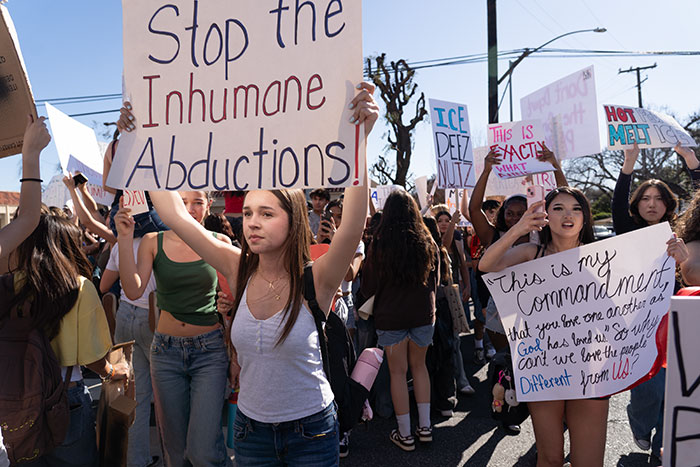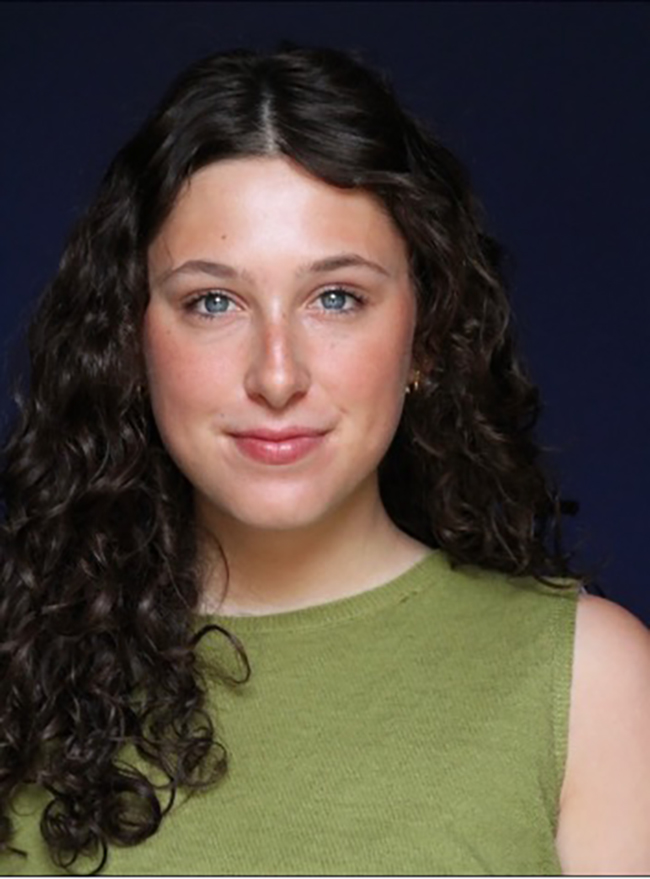BOOKMARK: Rev. Butch Henderson
Considering that Homer “Butch” Henderson and his wife Rosemary recently moved from their longtime residence to a house in the Pilgrim Place retirement community—downsizing significantly in the process—he hasn’t had much time to read lately. And yet books have been at the forefront of his mind.
While going through his books, deciding which to give away and which to keep, Rev. Henderson, a pastor emeritus who led Claremont United Church of Christ for 20 years, has taken the opportunity to assess which ones have really shaped his worldview.
Books changed Rev. Henderson’s life before he even started elementary school. He was held back from starting school for a year because of illness, but his grandmother began his education anyway, reading to him from a number of classics. There were The Adventures of Huckleberry Finn, Tom Sawyer and Swiss Family Robinson. A Child’s History of the World and A Child’s Geography of the World also made a distinct impression.
“I was 5 or 6 years old and living in a diverse but sheltered environment. These books opened my mind to a much larger world,” Rev. Henderson recalled.
Rev. Henderson’s family was college-educated and relatively liberal on religious matters. They had attended the Methodist Church in Lubbock, Texas. But when both of the breadwinners in the family, his father and his uncle, joined the military to serve in World War II, young Butch moved with his mother and grandmother to the poorer stockyard area of Texas. The only church in town was a Baptist congregation, Chestnut Avenue Christian Church.
“The religious ethos of the area was very conservative,” Rev. Henderson said.
The church insisted its young parishioners memorize passages of scripture, so by the time he had finished grade school, he had learned a good portion of the New Testament. Because of this, Rev. Henderson, who is a very progressive Christian, has never felt at a loss when discussing issues with more conservative Christians who resort to a bit of “Bible-thumping.”
“The ability to quote scripture has served me very well. It has had a very formative impact on my life,” Rev. Henderson noted.
Moving on to Rev. Henderson’s college days at Southern Methodist University, he encountered a couple books that he says completely altered the course of his thinking. The first of these was Honest to God by the Anglican Bishop John A.T. Robinson, published in 1962.
“It was one of the first popular, accessible books that shared in terms everyone could understand the cutting-edge of theology,” Rev. Henderson said. “It opened with a few statements that now seem to be old hat. He basically said, ‘There is no God up there or out there, but there is a God that is the ground of our being.’ It was a complete relocation in the way we imagine the divine.”
The book created quite a bit of controversy in the religious establishment because it sought to demythologize Christianity, questioning the “primitive cosmology” and “flat-world” thinking that still prevailed in many congregations.
“It opened my path to a broader vision, not only of Christ but of religion in general,” Rev. Henderson shared.
Another book that he was assigned, in that same vein, was Kerygma and Myth by Rudolf Bultmann. Rev. Henderson explained that kerygma is a Greek word for the “kernel of the good news, the gospel.”
In this book, Mr. Bultmann, a German Lutheran theologian and professor of the New Testament, tasked himself and his readers with a similar demythologization of Christianity. Again and again, he questioned the literal truth of stories in the Bible, instead looking for the deeper meaning behind the words.
“The virgin birth is a myth. It’s not a historical fact,” Rev. Henderson said. “But what is the kerygma within that myth? God is present in humankind. As a college sophomore, the lesson I got from [the book] is that it’s not so much what the Bible says but what it means.”
Rev. Henderson, who had made up his mind to go into the ministry, next attended graduate school at Yale Divinity School. Again, he found books to guide him on his life path. One of these was Strength to Love, a 1963 collection of sermons by Dr. Martin Luther King, Jr., primarily dealing with racial segregation in the United States.
During the same period, Rev. Henderson, galvanized by the Civil Rights struggle, participated in the March on Washington, riding there via bus along with noted clergyman and activist William Sloane Coffin.
Rev. Henderson was particularly moved by one of the sermons in Dr. King’s book, titled “A Tough Mind and a Tender Heart.” In order to effect change, Dr. King insisted, people must take heed of Jesus’ enjoinder to his disciples: “You must be wise as serpents and innocent as doves,” (Matthew 10:16).
By the 1970s, Rev. Henderson was out of school and serving as a reverend at a Methodist Church in his hometown of Lubbock, Texas. In 1978, he encountered a book that profoundly influenced the pastoral side of his ministry, which includes counseling parishioners and “guiding people through the passages of their lives.”
The book was The Road Less Traveled: A New Psychology of Love, Traditional Values and Spiritual Growth by M. Scott Peck, an American psychiatrist and best-selling author who Rev. Henderson joked “would be the Dr. Phil of that decade.”
“The first sentence, which I think is ‘Life is difficult,’ gave me insight into the importance of honest, open, candid relationships and communication,” Rev. Henderson said.
Another book Rev. Henderson found useful as he guided parishioners on their respective journeys was the 1966 book Situation Ethics: The New Morality by Episcopal priest Joseph Fletcher. Reading the book was one of those experiences we all have in which an idea has been slowly formulating in our minds and suddenly an author clearly articulates it for us, Rev. Henderson said.
Situation Ethics discusses 3 common methods of decision making, he related.
“There’s patent medicine, which says, ‘In every situation, do this always,’” Rev. Henderson noted. “There’s quack medicine, which says, ‘Do whatever you want in any situation.’ The third alternative is prescriptive medicine, which prescribes certain actions in certain situations.”
The Bible says, “Thou shall not kill,” which is certainly a good guideline to follow, Rev. Henderson noted. However, if you were in a Warsaw ghetto during the Holocaust, you might decide to kill a Nazi guard to obtain a loaf of bread to feed your starving family. A case could be made, Rev. Henderson said, that such a decision would be a moral act.
“You have to ask yourself, ‘What action or decision will show the most love for everybody concerned?’” he said.
Many conservatives today, both in political and religious spheres, bemoan the modern era, whose wholesomeness they feel has been muddied by “moral relativism.”
“I plead guilty to moral relativism, as long as you talk about contextualism,” Rev. Henderson said.
Now that he’s settled in his new digs, with most of the aforementioned books front-and-center on his bookshelf, Rev. Henderson may find himself with more time to find new books to influence his worldview. It is a possibility he values.
“There’s an interplay,” he emphasized. “Books become part of us, and we become part of books.”
—Sarah Torribio
storribio@claremont-courier.com







0 Comments